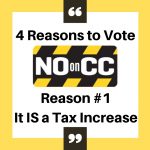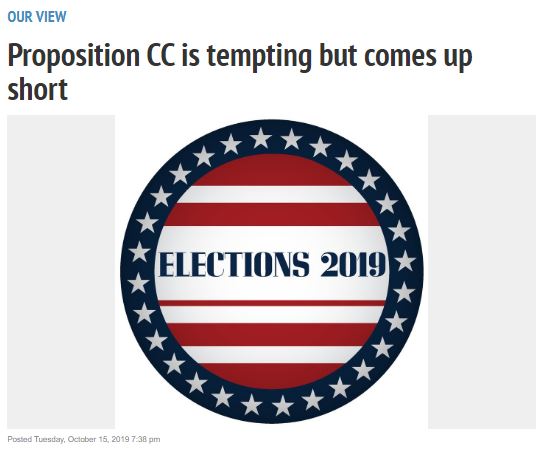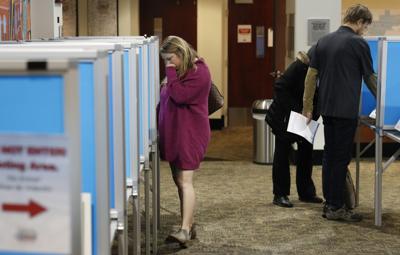Kevin McCarney of Mesa County reminds voters “All tax revenue goes to the general fund” with #PropositionCC.
 Colorado is a unique state for many reasons. Beautiful land, bountiful waters, the Rocky Mountains. However the most unique thing about our state is not physical. It’s a law passed in 1992.
Colorado is a unique state for many reasons. Beautiful land, bountiful waters, the Rocky Mountains. However the most unique thing about our state is not physical. It’s a law passed in 1992.
No other state in the union has one.
It is a most simple law. If the politicians want to raise our taxes, they have to put to a vote of the citizens. If they want raise our debt, they have to put it to a vote of the citizens. If the tgovernment collects more tax revenue than permitted they have to return the money to us. Simple as that.
Bureaucrats hate this law. So do most lawmakers. You see, they think they know how to spend our money better than we do and want the right to spend without limits.
Our Taxpayer’s Bill of Rights has led to a backlash at every level of government, and it stretches across party lines. Our people who represent us in government have one thing in common: They can never get their hands on enough of our money to spend.
 Reason No. 1: It does raise taxes.
Reason No. 1: It does raise taxes.
